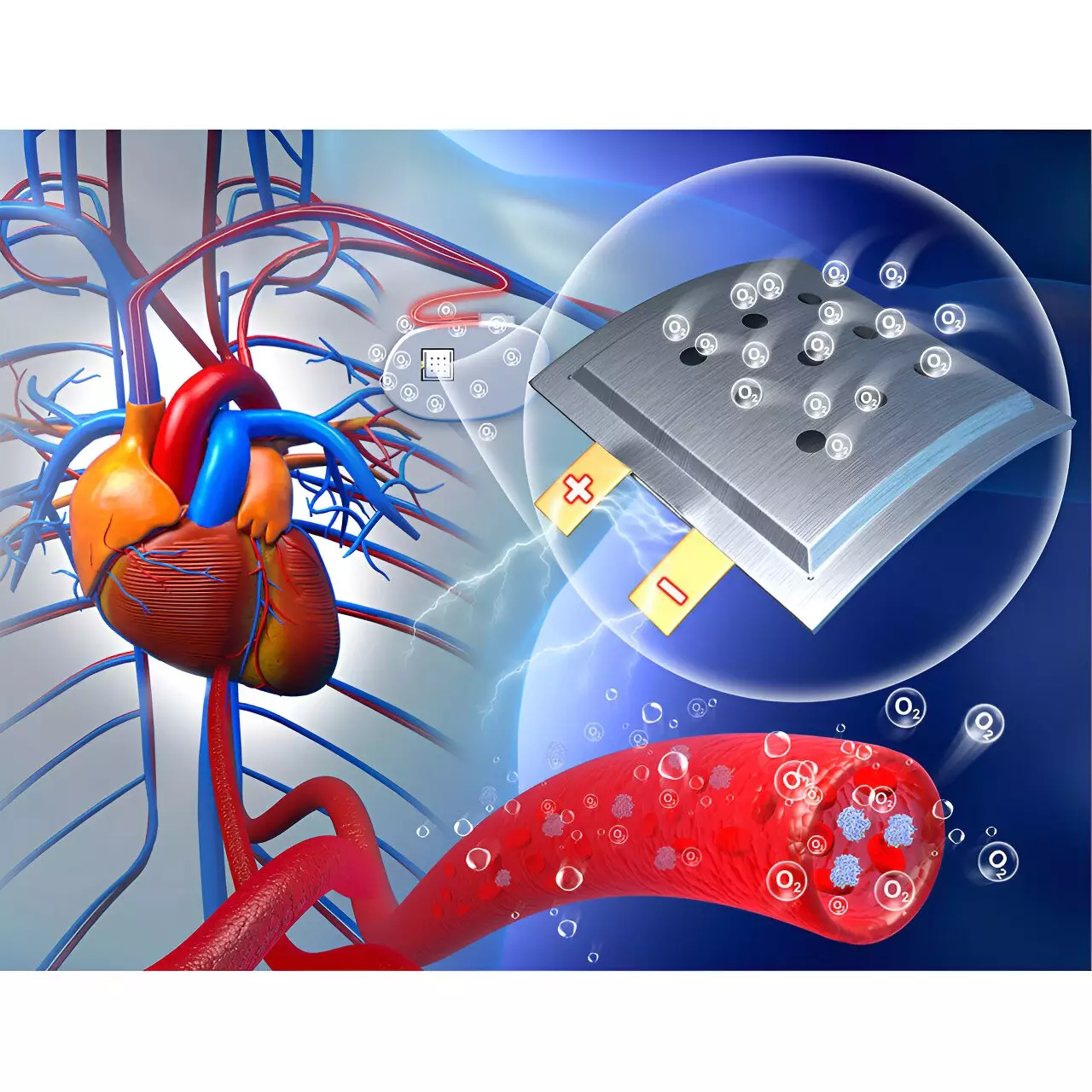The field of medical technology is constantly evolving, with innovations that improve patient outcomes and quality of life. One such groundbreaking advancement comes from researchers in China who have developed an implantable battery that runs on oxygen in the body. This innovative design, outlined in a study published in the journal Chem, provides a promising solution to the limitations posed by traditional batteries used in implantable medical devices.
The implantable battery relies on electrodes made from a sodium-based alloy and nanoporous gold, a material known for its biocompatibility. These electrodes undergo chemical reactions with oxygen in the body to generate electricity, eliminating the need for external power sources. The battery is encased in a porous polymer film that ensures safety and flexibility when implanted under the skin.
In experiments conducted on rats, the implantable battery demonstrated stable power delivery, with voltage outputs ranging between 1.3 V and 1.4 V. While the current power density may not be sufficient to drive medical devices, the study’s findings lay the groundwork for future enhancements. Furthermore, the battery showed minimal inflammatory reactions, rapid tissue regeneration, and effective metabolization of byproducts, highlighting its compatibility with biological systems.
Looking ahead, the research team plans to enhance the battery’s energy delivery by exploring more efficient electrode materials and optimizing the device’s overall structure. Additionally, the scalability of production and cost-effective material choices may contribute to broader applications beyond medical devices. The potential use of the implantable battery in cancer treatment, by leveraging oxygen sensitivity in tumor cells, presents an exciting avenue for further exploration.
The development of implantable batteries powered by oxygen represents a significant milestone in the medical technology landscape. By harnessing the body’s own resources for energy generation, this innovative approach holds the potential to revolutionize the field of implantable medical devices and open new possibilities for patient care. As researchers continue to refine and expand upon this technology, the future looks increasingly promising for the intersection of healthcare and cutting-edge innovation.



Leave a Reply